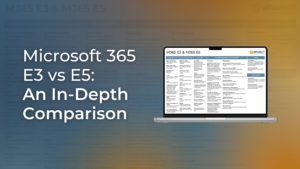For those of you who don’t know what ‘hosted exchange’ refers to, let’s make that clear first.
Hosted Exchange, or hosted email, is an email hosting service provided to businesses by IT companies. The service provider, or host, stores, maintains and manages their client’s email portal on a server in their secure datacentre.
The hosted exchange server allows the clients access to their emails, address book, calendar, files, email tasks and notes via computers and mobile devices. Microsoft Exchange Server is the most widely used business messaging platform, most frequently accessed using the familiar Microsoft Outlook.
Exchange outsourcing makes sense especially for small and medium-sized businesses, as it is costly, time-consuming and requires IT staff to run an exchange server in-house.
Let’s take a closer look at what some of the pros and cons of hosted exchange are.
Pros
– Effortless. In exchange for a monthly or yearly fee, the exchange email hosting provider maintains, updates and monitors the client’s email portal. All hardware and software is owned and updated by the hosting provider too.
– Scalability. At some point your local server storage will run out of space, and you’ll have to upgrade, whereas you won’t have that problem with hosted exchange as the pricing usually follows a ‘pay as you go’-model. This means you’ll only pay for the server space you need.
– Email disaster recovery. The hosting provider will have a backup plan, ensuring the clients’ emails will be recovered if some sort of an IT disaster strikes.
– Latest Exchange version. Outsourcing your email exchange means you’ll always have the latest Microsoft Exchange version, which will save you money as you don’t have to replace Exchange with every new release.
– High availability. Hosted exchange providers have highly secure, geographically dispersed data centres that are programmed to minimise email downtime.
– Secure. Your data will be in a more secure environment and more advanced anti-spam solutions will ensure you get less junk mail.
– Flexibility. Letting professional exchange providers do the job for you means that your IT department can focus on core business processes that will increase productivity instead.
Cons
– Increased bandwidth. As all emails, including internal ones, have to be sent and received via the internet, extra bandwidth is required when moving to exchange hosting – and more megabits are expensive.
– User training needed. Many users tend to use email as a file storage/delivery system, which will eventually kill your connection. Training staff to use the shared drive instead might be necessary when moving to hosted exchange.
– Ownership issues. Switching from internal to hosted exchange is not the best solution for companies that feel uncomfortable letting a third party manage their emails and want to retain ownership and full control of their data.
– Internet down. An internet failure in a hosted environment means that you can’t send or receive emails as it is all done through the internet. With an on premise solution you’ll still be able to send internal emails with a LAN (Local Area Network).
– No control. If email, for some reason, goes down there’s nothing you can do it to fix it yourself, but you’ll have to wait for the provider to get the system up and running again.
If you do decide to take the plunge and move to hosted exchange, make sure you know what level of service you’re paying for, if the hosting provider will help you migrate existing data to the new server and what the terms and conditions for cancelling the subscription are.
If you’d like to know more about the benefits of Hosted Exchange






